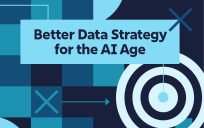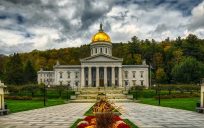The city of Los Angeles needed more than partnerships with institutions to roll out its $1.3 million-dollar artificial intelligence (AI) initiative around air quality. It needed community buy-in.
Funded by NASA, the project “Predicting What We Breathe” uses AI that is driven by data from satellite and ground sensors to analyze urban air quality.
- People in low socioeconomic positions, and Black, Asian and Hispanic residents often face higher exposure to pollution, says the American Lung Association.
- Some of the city’s most impoverished communities were also found to have the least amount of air quality sensors, said Jeanne Holm, Deputy Mayor for Budget and Innovation for the city of Los Angeles.
- The sensors are needed to gather data to help the city understand how to provide clean air in neighborhoods that need it most.
In April 2021, the city set up citizen science programs with local community organizations to distribute free sensors to residents, Holm said at GovLoop’s May 12 virtual summit.
Working through trusted brokers like Pacoima Beautiful, an environmental justice organization, was key to gaining the communities’ trust for setting up the devices.
- “If we can convince [the brokers] this is a good thing, they use their trust to carry this forward,” Holm said.
- The city also used lessons learned from the census, where community trust was also vital to get residents counted. It continues to use ambassadors from the census to reach residents.
The air quality project is just one of many new tech initiatives focused on equity. Others in Los Angeles include:
- BIG: LEAP, a citywide guaranteed income program.
- Angeleno Corps, which helps youth find employment in technology, arts and education.
- Angeleno Connect, a single sign-on capability for key city services that allows residents without bank accounts to qualify for banking services.
- Repair Innovation Fund, a participatory budget program that allows residents to decide where they want city funds spent.
- Get Connected LA (GCLA), a digital inclusion program that helps residents receive low-cost or no-cost internet.
“As we come out of the pandemic, it’s an opportunity to take advantage of what we made and figure out a way to sustain those and make them digitally equitable,” Holm said.
Check out other recaps from today’s virtual summit here, and make sure to register for other upcoming GovLoop online trainings.





Leave a Reply
You must be logged in to post a comment.